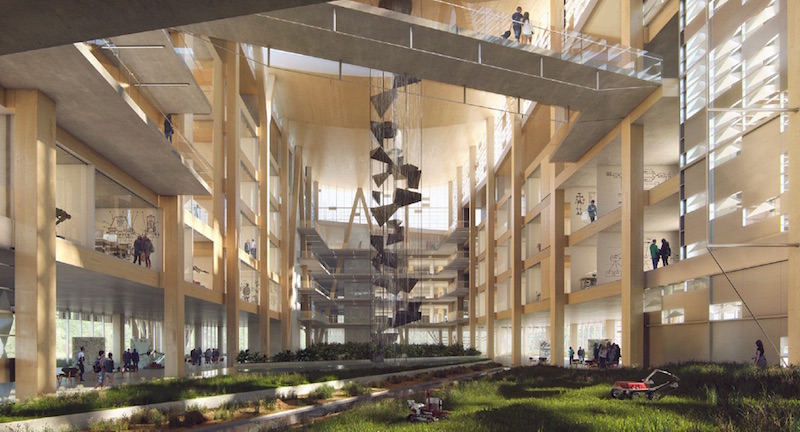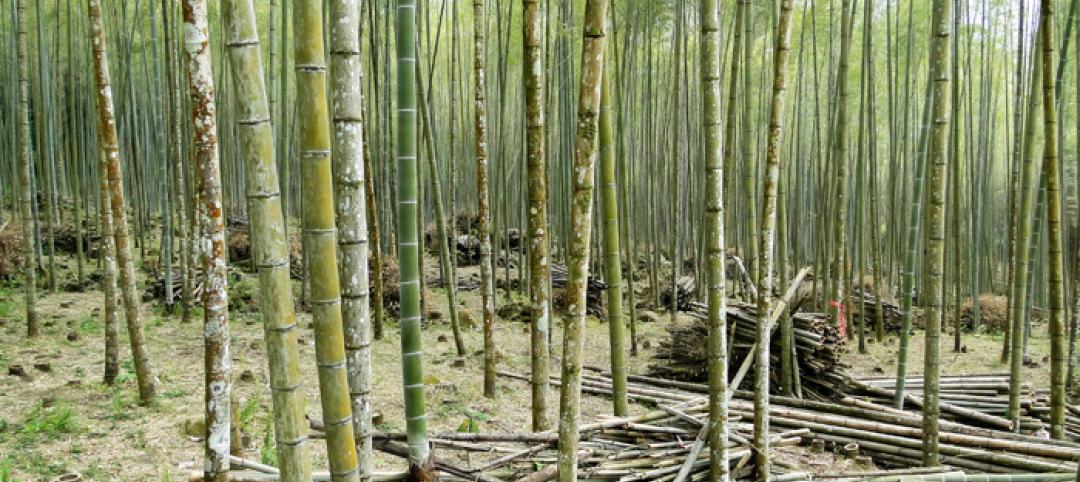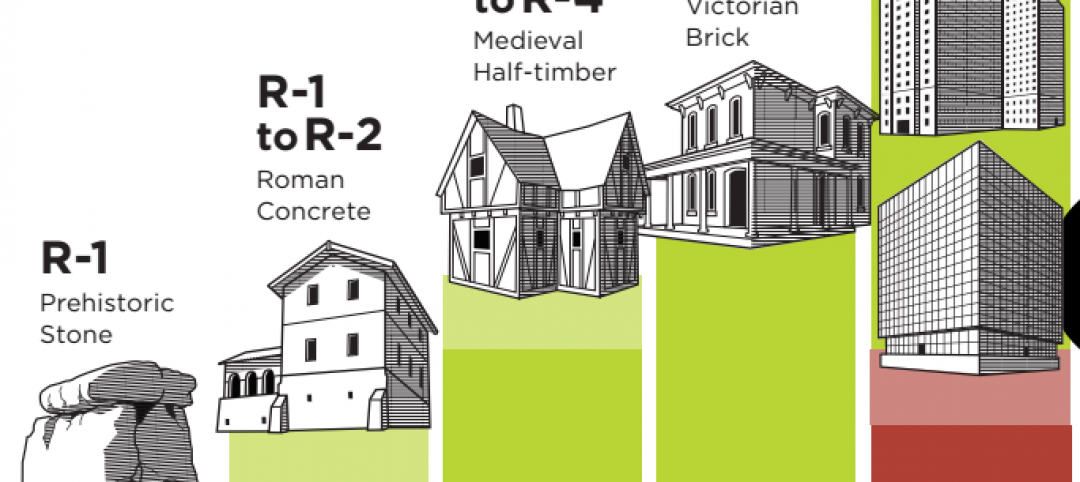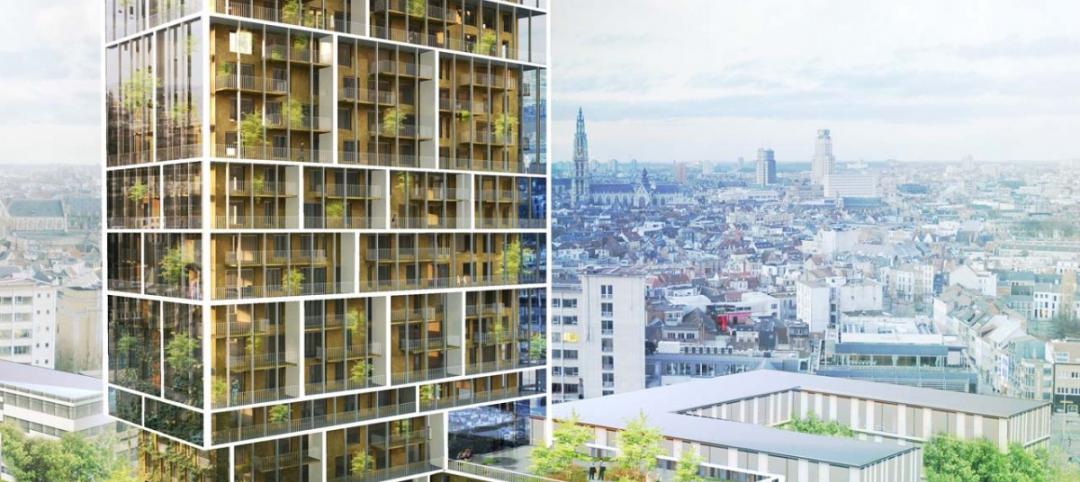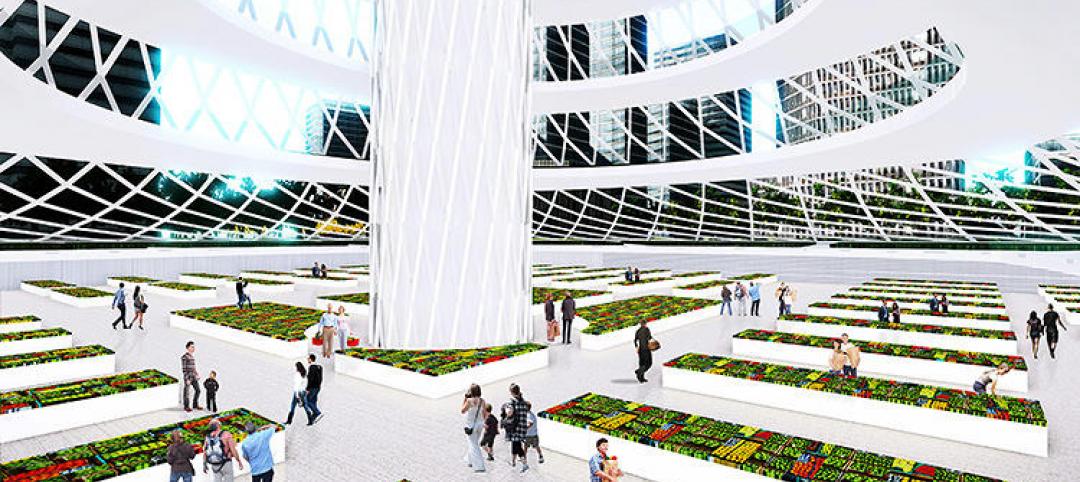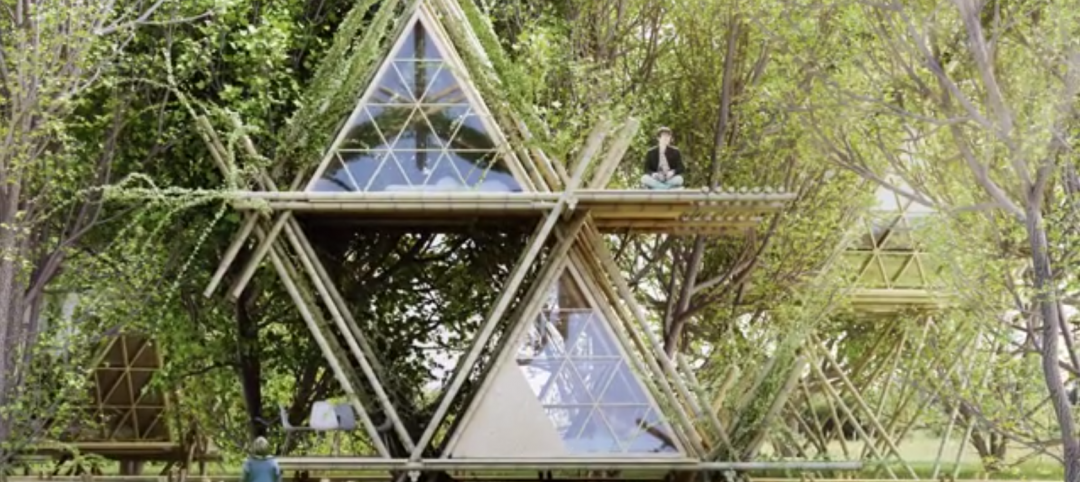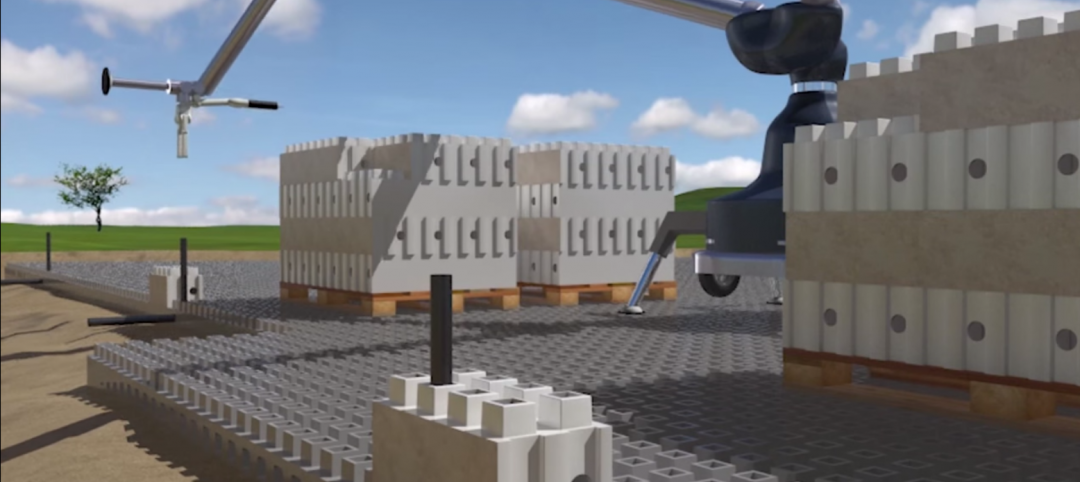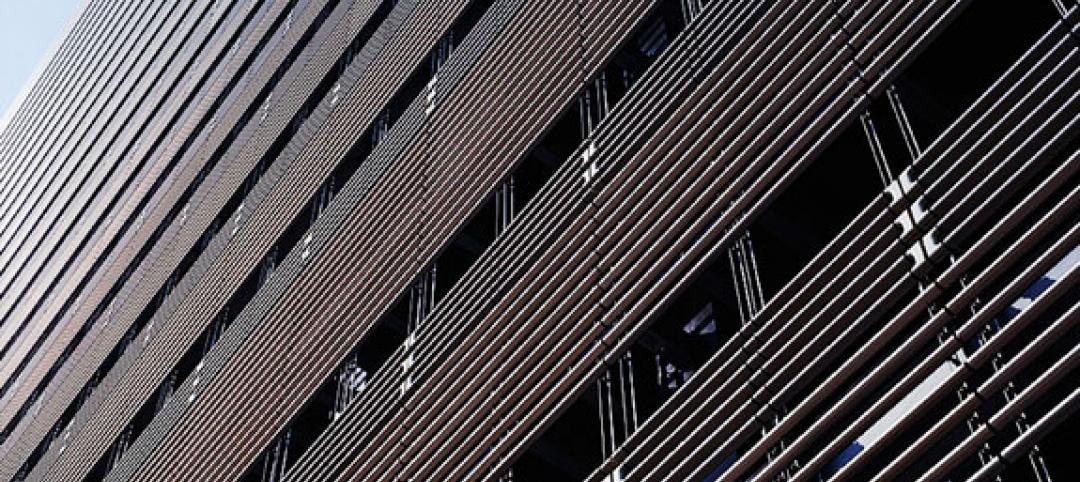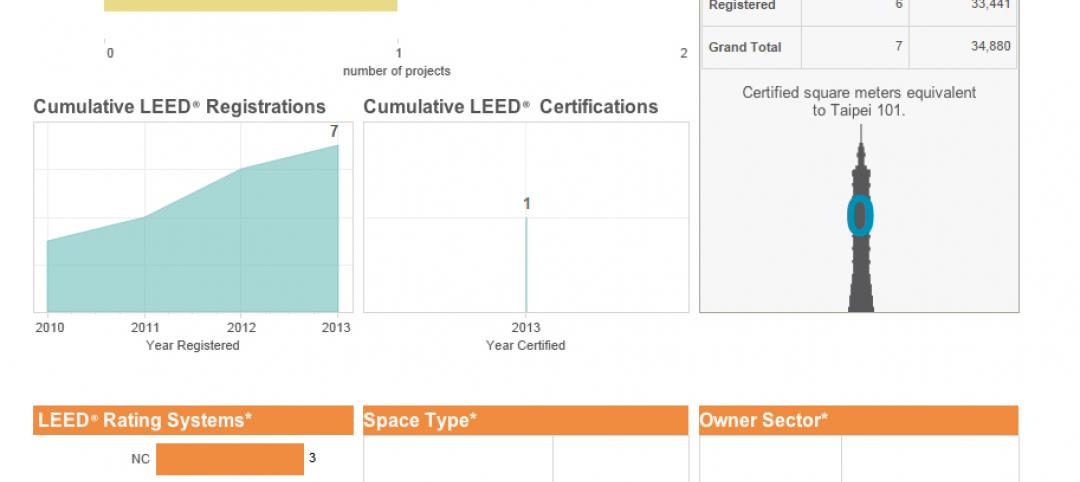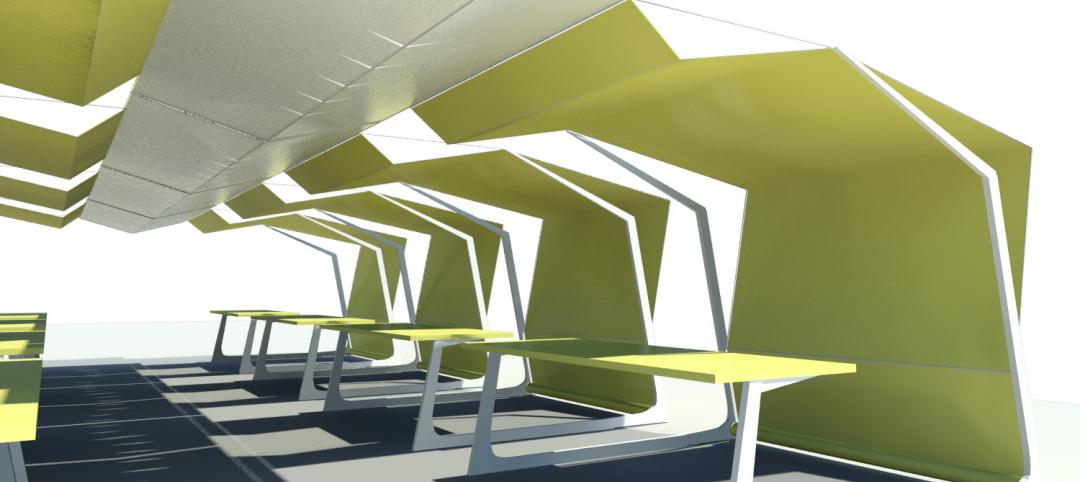The new Interdisciplinary Science & Technology Building, or ISTB-7, on the Arizona State University campus will produce enough carbon, energy, water, and waste to achieve triple net-zero performance.
The Studio Ma-designed building will become ASU’s newest science and research complex and include a large atrium biome filled with plants and water. ISTB-7 will bring together a wealth of regenerative and bioclimatic technologies to reach its triple net-zero goal.
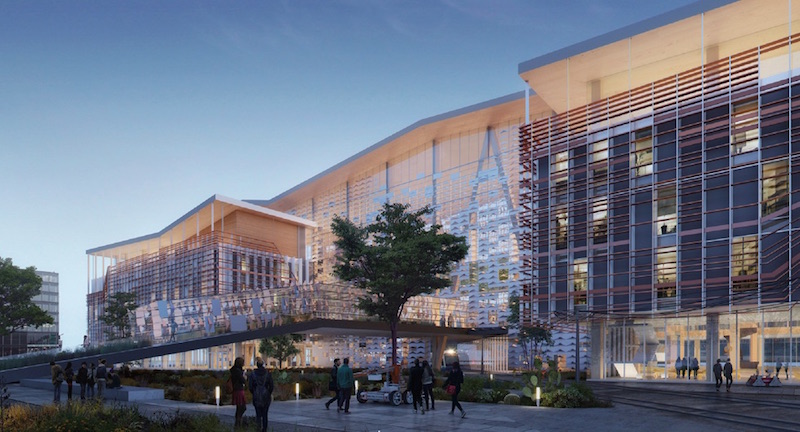 Rendering courtesy of Studio Ma.
Rendering courtesy of Studio Ma.
Among these technologies are materials that include ASU’s own scientific research and integrated-carbon-capture technology. The structure’s building materials absorb carbon and convert it to nutrients for durable materials and enriched soil.
The atrium biome purifies waste air and a wetlands landscape recycles water using natural, bio-based methods. Rainwater is collected and sun shades help keep the interiors cool and comfortable. Sewage is treated and recycled via low-energy, bio-based systems for use as greywater. Air currents, evapotranspiration, and photovoltaics are used to save and produce energy.
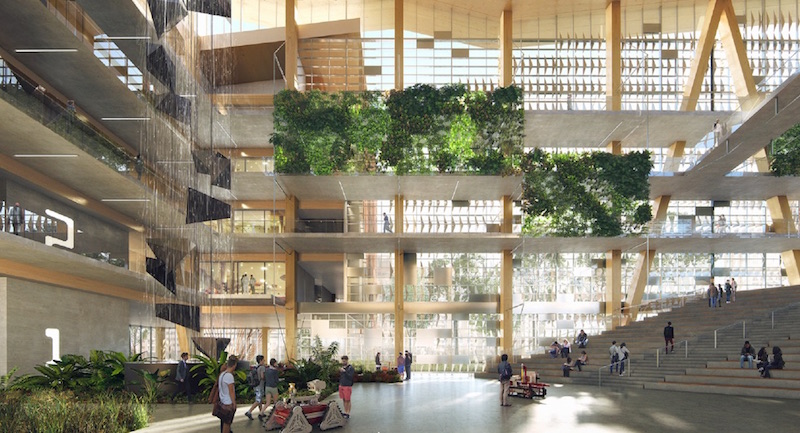 Rendering courtesy of Studio Ma.
Rendering courtesy of Studio Ma.
The inclusion of a light rail station will transform ISTB-7 into a new gateway to the campus.
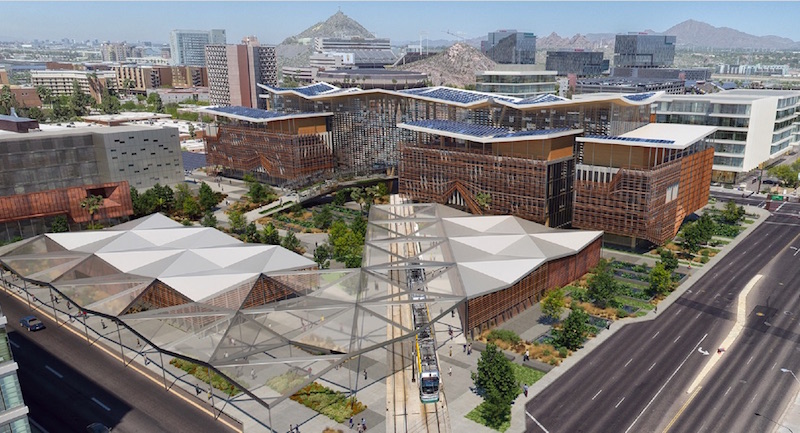 Rendering courtesy of Studio Ma.
Rendering courtesy of Studio Ma.
Related Stories
| Jul 24, 2014
MIT researchers explore how to make wood composite-like blocks of bamboo
The concept behind the research is to slice the stalk of bamboo grass into smaller pieces to bond together and form sturdy blocks, much like conventional wood composites.
| Jul 17, 2014
A harmful trade-off many U.S. green buildings make
The Urban Green Council addresses a concern that many "green" buildings in the U.S. have: poor insulation.
| Jul 17, 2014
A high-rise with outdoor, vertical community space? It's possible! [slideshow]
Danish design firm C.F. Møller has developed a novel way to increase community space without compromising privacy or indoor space.
| Jul 16, 2014
Check out this tree-like skyscraper concept for vertical farming
Aprilli Design Studio has stepped forward with a new idea for a vertical farm, which is intended to resemble a giant tree. It uses lightweight decks as outdoor growing space, adding up to about 25 acres of space.
| Jul 14, 2014
Meet the bamboo-tent hotel that can grow
Beijing-based design cooperative Penda designed a bamboo hotel that can easily expand vertically or horizontally.
| Jul 11, 2014
Are these LEGO-like blocks the future of construction?
Kite Bricks proposes a more efficient way of building with its newly developed Smart Bricks system.
| Jul 10, 2014
BioSkin 'vertical sprinkler' named top technical innovation in high-rise design
BioSkin, a system of water-filled ceramic pipes that cools the exterior surface of buildings and their surrounding micro-climates, has won the 2014 Tall Building Innovation Award from the Council on Tall Buildings and Urban Habitat.
| Jul 10, 2014
New tool aggregates LEED project info for over 150 countries
The U.S. Green Building Council announced the launch of an expanded online data visualization resource that will allow any user to access aggregated LEED green building project information in the more than 150 countries with LEED projects.
| Jun 30, 2014
4 design concepts that remake the urban farmer's market
The American Institute of Architects held a competition to solve the farmer's markets' biggest design dilemma: lightweight, bland canopies that although convenient, does not protect much from the elements.
| Jun 20, 2014
U.S. Energy Information Administration releases preliminary Commercial Buildings Energy Consumption Survey results
Federal survey project shows that commercial-building floorspace has grown 22% since 2003; energy-use data will be released in Spring 2015.


